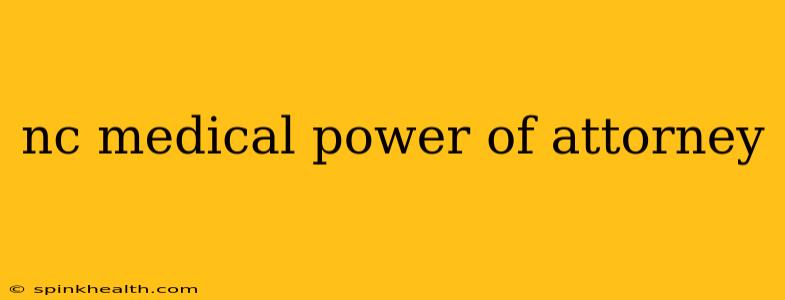The crisp autumn air swirled fallen leaves around my feet as I walked, lost in thought. My grandmother, a vibrant woman who’d always been fiercely independent, was facing a health challenge that required some difficult decisions. It brought home the importance of planning ahead, particularly when it comes to healthcare. This led me down a path of understanding North Carolina's Medical Power of Attorney (MPOA), and I want to share what I learned, hoping to help others navigate this crucial aspect of estate planning.
It's not a pleasant topic, but facing the possibility of losing the capacity to make decisions for yourself is a reality many of us will confront. An NC Medical Power of Attorney allows you to choose someone you trust to make healthcare decisions for you if you become incapacitated and unable to do so yourself. This isn't just about end-of-life care; it encompasses all aspects of your medical treatment.
What is a North Carolina Medical Power of Attorney?
A North Carolina Medical Power of Attorney is a legal document that designates an agent (the person you choose) to make healthcare decisions on your behalf if you become unable to make them for yourself. This includes decisions about medical treatment, hospitalization, nursing homes, and even end-of-life care, such as the use of life-sustaining treatment. It's a vital tool for ensuring your wishes are respected, even when you can no longer express them.
Who Can Be My Agent in NC?
You have considerable flexibility in choosing your agent. It can be a family member, a close friend, or even a trusted professional, such as an attorney or healthcare advocate. The key is selecting someone you implicitly trust to make decisions that align with your values and beliefs. The chosen agent must be at least 18 years old and have the capacity to understand the responsibilities involved.
Can I appoint more than one agent?
Yes, you can. In fact, naming multiple agents can provide a safety net, ensuring that at least one person can act on your behalf if one agent is unavailable or unable to make decisions. You can also specify whether your agents must act together (concurrently) or whether one can act alone (alternately). This is a critical detail to consider when drafting your document.
What if I don't name an agent?
Without a designated agent, your healthcare decisions will fall to your next of kin, which may not reflect your preferences. This highlights the importance of proactive planning. An MPOA empowers you to control your healthcare future.
What Happens if My Agent Becomes Unable to Act?
Your document should include a provision for a successor agent. This is a crucial safeguard; should your primary agent become unavailable or unwilling to act, the successor agent will step in to assume responsibility.
How Does an NC Medical Power of Attorney Differ from a Living Will?
This is a common question. A living will, also known as an advance directive, outlines your wishes regarding specific medical treatments, such as life support. An MPOA, on the other hand, empowers your chosen agent to make all healthcare decisions based on their understanding of your wishes and best interests, even if those decisions don't explicitly align with something stated in a living will. Ideally, both documents work together to provide comprehensive healthcare planning.
What Should I Include in My NC Medical Power of Attorney?
While a standard form is available, tailoring your MPOA to your specific circumstances is crucial. Consider including:
- Specific instructions: While your agent has broad authority, you can include detailed instructions about your preferences regarding specific treatments or healthcare situations.
- Values and beliefs: Articulate your values and beliefs concerning medical treatment, helping your agent to understand your wishes.
- Limitations on your agent's authority: You can specify any limitations on your agent's power, such as prohibiting certain treatments.
- Contact information: Provide thorough contact information for your agent, healthcare providers, and other relevant individuals.
Where Can I Get Help Creating an NC Medical Power of Attorney?
Creating a legally sound MPOA requires careful consideration. It's highly recommended to seek legal assistance from an experienced estate planning attorney. They can guide you through the process, ensuring your document is accurate, comprehensive, and legally compliant.
This journey into understanding NC's Medical Power of Attorney has been both informative and deeply personal. It's a process that should be undertaken with thoughtful consideration and, ideally, the guidance of a legal professional. Remember, proactive planning is a powerful act of self-care and ensures your wishes are respected throughout your life.

